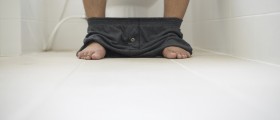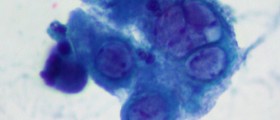
Gonorrhea fits into the class of sexually transmitteddiseases that is caused by the bacteria called neisseria gonorrhoeae. Thesymptoms of gonorrhea usually get recognized in two weeks after being exposedto the bacteria. The symptoms include a tingling sensation in the urethraduring the urination. In a few hours tingling becomes a painful sensation and apus-like matter gets discharged.
After a while the pain gets more severe andthe amount of discharge increases as it becomes thicker. Women may feel nothinguntil it progresses to a significantly advanced form. In its early stages itmay be recognizable by a mild cervical inflammation and a light discharge fromthe vagina. If not treated on time, later on it leads to frequent and painfulurination. Sometimes it can be mistaken for certain types of bladder infection,but it is easily recognizable by the unusual discharge.
Gonorrhea can lead to other complications such as urethritisor prostitis in men, while on the other hand it can even cause pelvicinflammatory disease and ultimately infertility, in women. Bacteria can get toother parts of the body via bloodstream and cause arthritis and heart problems.
If it is not treated promptly, gonorrhea can develop intoprostitis or urethritis in men. In women, it can spread to the fallopian tubesand uterus, causing pelvic inflammatory disease (PID) which, in turn, can leadto infertility. The bacteria also can travel through the bloodstream to otherparts of the body, potentially causing heart Problems or arthritis.
Gonorrhea is easily recognizable by thick discharge from thepenis or vagina, more frequent urination, pain in lower abdomen, burningsensation while urinating, painful sexual intercourses, fever, nausea andvomiting.
Gonorrhea is very hard to diagnose all by itself. Thepatient has to be checked for inflammation and discharge and further infectedtissue testing and a pelvic examination needs to take place. Gonorrhea ishighly contagious and one may need to contact all present and past sexualpartners if diagnosed with one. Antibiotics like ceftriaxone and doxycyline arethe usual treatment for gonorrhea. Chlamydia may also occur simultaneously withgonorrhea.
Supplements may help with healing and those include garlic,vitamin C, zinc, colloidal silver, free-form amino acid complex, a prodophilusformula, vitamin K, raw glandular complex and the vitamin B complex. Acupuncturemay be used for the fortification of the immune system so the body can fightthe bacteria properly, although it cannot prevent or cure gonorrhea. It alsorelieves pain, reduces fever and relieves inflammations.

















Your thoughts on this
Loading...